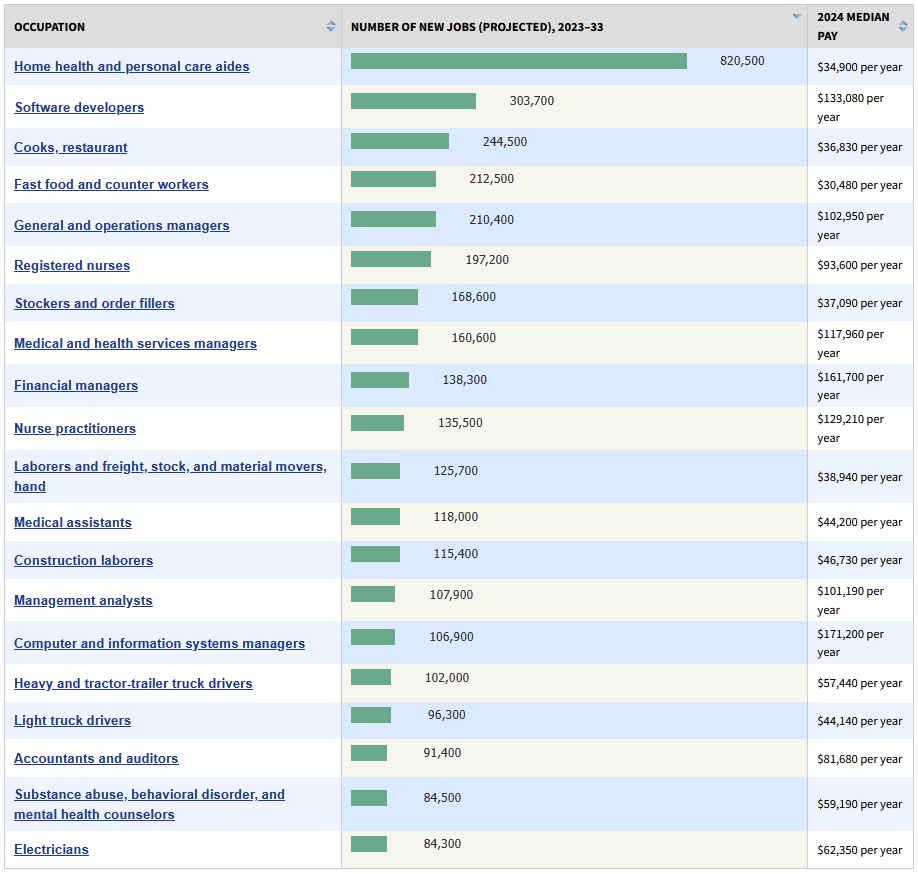So you are a student interested in a career in computer science. What is the job market going to be like when you graduate?
Predicting the future is always challenging, but when it comes to forecasting the U.S. job market, it's useful to look to the U.S. Bureau of Labor Statistics (US-BLS), which publishes employment projections for the coming decade. Here's what the data are telling them for new jobs over 2023-2033.

Note, in particular that software development comes in at #2 and CIS managers at #15. If you follow these two hyperlinks, you'll get details on what people working in those fields do and see that the standard entry-level qualification is the bachelors degree.
Not that salary is the only consideration, but if we sort the top fields for new jobs by 2024 median salary rates, we see that CIS management and software development are two of the top three fields. This indicates a robust demand for students trained in computer science or information technology.

If you're interested and gifted in computer science, you can be reasonably certain that there will be a job out there for you on graduation. As we often say at Calvin, computing could be your vocation, that is, the place where your demonstrated gifts meet the world's demonstrated need.
We invite you to join us—we will do everything we can to help you develop your gifts and step into your vocation.






